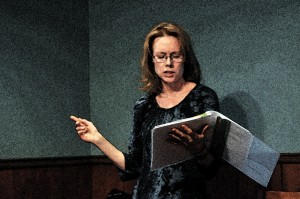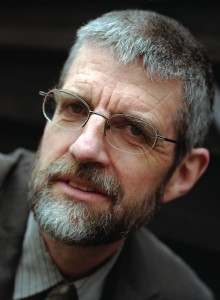 Writing poetry is a strange addiction. I have never been able to explain it: this strange desire to sit alone in a room for hours with nothing but a pen and pencil to entertain me. I have friends and family members who simply do not understand it. Sometimes they resent it. Or regard me with suspicion. One friend suspected me of having an affair, or perhaps a series of affairs. As she put it, why else would I disappear for hours at a time and not answer my door, my phone, or my email. Why else would I look so exhausted at the end of a day, as if I had had a disagreement with a lover? Why else would I have no appetite, and want to sip wine and brood, my mood sour, my mind distracted.
Writing poetry is a strange addiction. I have never been able to explain it: this strange desire to sit alone in a room for hours with nothing but a pen and pencil to entertain me. I have friends and family members who simply do not understand it. Sometimes they resent it. Or regard me with suspicion. One friend suspected me of having an affair, or perhaps a series of affairs. As she put it, why else would I disappear for hours at a time and not answer my door, my phone, or my email. Why else would I look so exhausted at the end of a day, as if I had had a disagreement with a lover? Why else would I have no appetite, and want to sip wine and brood, my mood sour, my mind distracted.
But most who know me know the sad truth: I lead a truly boring life. Whatever affair that exists is between me and poetry. And it makes no sense. Why? my mother used to ask me every summer, would anyone spend her spare time inside when she could be hiking or swimming or having fun with friends? My father nodded. Is there any money in this hobby? he asked. My friend, a yoga teacher, chimed in, Is there some kind of glory one feels, or enlightenment one attains after writing a great poem?
No, I answered. I rarely finish a poem. Eventually, I just feel finished.
Sometimes I, too, wonder. I think of all the invitations, especially morning invitations, I have turned down. When pressed for an explanation, I say that the muse might stop in for a visit. And she usually visits in the morning. I simply can’t take the chance that I might miss her.
Muse? Really? they ask, and I nod.
I don’t explain that it’s not just one muse. Actually there is an entire alphabet of muses who visit, and they change over time, from the alpha muse, or the first muse I ever met, to the zed of muses, or the end of all muses, and the one who will be end of me. The zed keeps me stuck in my desk chair, hours at a time, with my neck burning, my head aching, my mind blurring. Just one more try, she whispers.
But the best are the 24 muses in between the alpha and the zed, from the blond muse, also known as the bitch, with her long flowing hair, red boots and fuck-you smirk, to the cartographer-muse who keeps a map of my soul in her pocket, to the deceptive muse who tells me only a lie can save me.
There is also the ethereal muse, who offers glimpses of immortality, the feline muse who purrs when she likes me but suddenly bites, sinking her teeth in my skin, and the ghostly muse who hangs out with the dead.
There is the happy muse who likes to quote Camus: One must imagine Sisyphus happy.
And the illusive muse, who appears only if she wishes, though I am never sure she is really there, and the jealous muse who looks at all the poets who have accomplished more than I. Putting her hands on her hips, she glares at me. Are you ever going to write a real poem?
There is the klepto-muse who steals others’ lines when I am not looking, and the lunar muse who wakes me at night and begins reciting my unwritten poems before I can grab a pen. And the mischievous muse who inspires me to write terrible poems, which I love only while composing them, and afterwards recoil in shame.
There is the Nike muse, with her perfectly toned body and new running shoes, calling out, Let’s go for a run. I keep a pen in hand as we jog together, and once we start moving the poems flow more naturally. (But it’s hard to run and write at the same time!) There is also the orgasmic muse who equates great poems with great sex, and the peaceful muse who is as soothing and memorable as warm milk. And the queen of all muses who dictates exactly what I must write, and I write it, word for word.
There is the red muse who is like the flag bulls charge at, though she disappears just when I arrive, and the sacred muse who prefers prayers to poems and often equates the two. And the tardy muse who arrives when I am about to give up hope.
There is the urgent muse who tells me, you must write this poem now. And the vain muse who thinks she is my raison d’etre, that without her, I am no one. And there is the weeping muse who watches the world from her window in heaven.
There is the xenophobic muse who has no use for those who do not worship her, or those who are not writers or artists or dancers. And there is yesterday’s muse who keeps writing the poems I wrote long ago, especially poems about orgasms. And there is the zed, also known as Zeno’s muse.
Zeno’s muse knows I will never be done with her, though sometimes I imagine an end-point. A life without this kind of suffering. I look forward to that day when I will no longer be sitting at this desk, no longer spellbound by an invisible world, no longer composing words no one will read, no longer imagining a perfect poem, a little sliver of heaven that is not yet swallowed by the dark.
